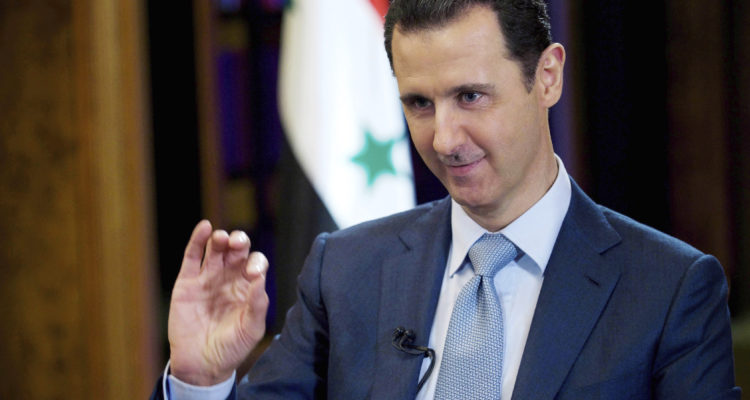The Syrian dictator refused, citing strained relations with the Islamic Republic.
Syria’s Bashar al-Assad rebuffed multiple Iranian requests to attack a vulnerable Israel in the aftermath of Hamas’ October 7 massacre.
Under Assad’s rule, Syria had served as Iran’s regional terror hub, having facilitated weapons transfers to terror proxy groups like Hezbollah and Hamas for decades.
The Islamic Revolutionary Guard Corps (IRGC) also controlled airports, and warehouses, and operated missile and drone manufacturing bases in Syria.
However, a leaked recording of a speech given by IRGC Behrouz Esbati at a mosque in Tehran last week reveals that Assad had been presented with comprehensive military plans to leverage Iranian assets in Syria for strikes against Israel.
But in spite of his thirst for innocent blood, the Syrian dictator refused, citing strained relations with the Islamic Republic.
“I don’t consider losing Syria something to be proud of,” Esbati said in the recording obtained by the New York Times. “We were defeated, and defeated very badly, we took a very big blow and it’s been very difficult.”
Serving as an IRCG commander in Syria, Esbati also accused ally Russia of actively undermining operations in the war-torn country.
According to his account, Russian forces deliberately misled Iran by claiming to bomb Syrian rebel positions while actually dropping ordnance on empty fields.
More damaging still, he alleged that Russia had turned off Tehran’s alert radars during Israel’s retaliatory strikes in October.
While Esbati outlined plans to maintain influence through insurgent networks in post-Assad Syria, experts question the regime’s ability to effectively operate given the new political landscape and Israeli warnings of swift retaliation against any detected Iranian presence.
Yet perhaps most revealing was his frank confession about future strikes against Israel.
Dropping the usual bravado that typically characterizes Iranian official statements, Esbati admitted that there were “operational limitations” and pointed to last fall’s missile barrage against Israel as the IRGC’s sole response for the time being.




